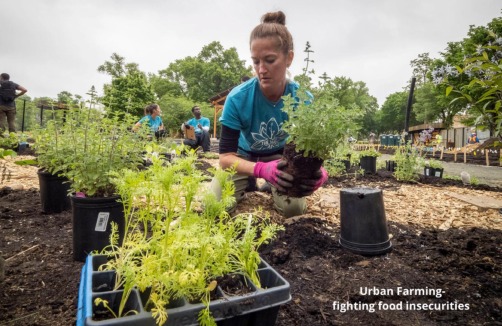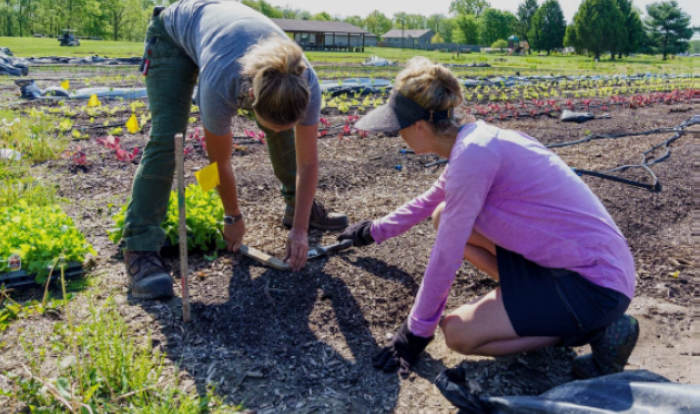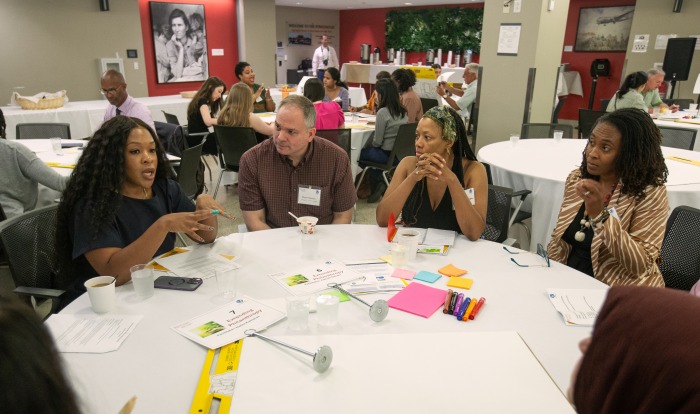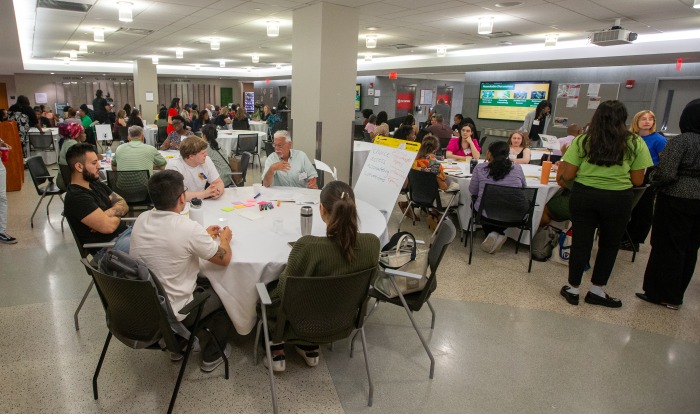
Hunger and food insecurity affect many residents and students in New Jersey, impacting academic performance, mental health, and well-being. This article explores practical solutions, ranging from university campus pantries and urban farming, to community programs, and policy advocacy. Continue reading to discover how to thrive in your neighborhoods through enhanced food security, health education, cause marketing activation, and sustainability leadership.
Limited Access to Nutritious Food in New Jersey
In New Jersey there are areas where residents have limited access to affordable and nutritious food including low-income neighborhoods lacking supermarkets within a reasonable distance. In New Jersey,
numerous urban and rural areas are classified as food insecurity areas. Newark, Trenton, and Camden are among the cities with significant populations facing food insecurity and health problems due to the lack of nearby grocery stores and affordable fresh produce. Living in areas with food limitations is associated with poor diet quality, higher rates of diet-related diseases such as obesity and diabetes, and overall poorer public health and wellness outcomes.
Fighting Hunger in New Jersey: Key Organizations and Initiatives
Numerous organizations are dedicated to combating hunger. These organizations not only provide immediate assistance but also advocate for long-term solutions to end hunger.
Community FoodBank of New Jersey (CFBNJ), is the state's largest anti-hunger and anti-poverty organization that works with a network of over 1,000 partner agencies. Mercer Street Friends is a
Quaker-affiliated organization in Trenton that operates the Mercer Street Friends Food Bank. They address food insecurity through various initiatives, including emergency food assistance, school food
programs, and community gardens. Feeding America, a national organization, has a significant presence in New Jersey and it builds a community of advocates, policymakers, and anti-hunger partners to
strengthen food assistance programs and advance policies to end hunger and its root causes.
Innovative Solutions Also Include:
● Mobile Markets and Food Delivery Services: Implementing mobile markets and food delivery services can bring fresh produce and healthy foods to food deserts.
● Urban Agriculture and Community Gardens: Encouraging urban agriculture and the development of community gardens can increase the availability of fresh produce in food deserts. Programs like the Urban Agriculture Cooperative in Newark and NSAS Farm to Table Coop, support residents in acquiring fresh food or growing their own food.
Hunger Among College Students
Studies conducted among universities nationwide have shown that food insecurity is a significant problem on college campuses. According to a 2019 report by the Hope Center for College, Community, and Justice, 39% - 45% of college students nationwide experienced food insecurity. Students facing hunger are more likely to have lower grades, higher stress levels, and an increased likelihood of dropping out.
Rutgers University Initiatives: Tackling Food Insecurity Among Students
● Food Pantries and Meal Programs: Colleges can establish on-campus food pantries and meal-sharing programs to provide immediate relief to food-insecure students. For example,
Rutgers University has set a strong example with several food pantries and a student-led meal swipe donation program. The Rutgers Student Food Pantry is a vital resource, offering free
groceries to students in need. Additionally, the Meal Swipe Donation Program allows students to donate their unused meal swipes to peers who are facing food insecurity.
● Emergency Grants: Offering emergency financial assistance to students in crisis can help them cover basic needs, including food. This could be in the form of grants, loans, or vouchers specifically for purchasing food.
● Health Education and Awareness: Providing education to students on budgeting, nutrition, and cooking skills empowers students to make healthier food choices on a limited budget.
Urban Farming Programs for College Students, Kids and Families
Rutgers New Jersey Agricultural Experiment Station (NJAES) expertly guides college and school students in gardening, offering delicious, healthy food and family-friendly outdoor activities. Gardening
helps alleviate stress and anxiety, providing positive emotions, calm and quiet. “Whether you have a large garden or a few containers, NJAES is here to support you every step of the way.” By engaging in these and similar initiatives, we are working toward a better future for all generations.
Introducing urban farming programs in schools can have a lasting impact on children's health and education. In New Jersey, several schools have implemented urban farming programs that engage students in hands-on learning experiences. These programs not only provide fresh produce for school meals but also incorporate lessons on science, math, and environmental stewardship. By involving children and their families in urban farming, we can promote healthy eating habits, family values, and environmental awareness from a young age.
Urban Farming and Community Gardens. What is Urban Farming?
Urban farming refers to the practice of growing and cultivating food in an urban environment. This can include activities such as rooftop gardens, community gardens, vertical farming, and hydroponics. Urban farming aims to increase local food production, reduce food deserts, promote sustainability, and create greener urban spaces. Urban farming and community gardens can play a significant role in addressing food insecurity, especially in the areas where access to fresh produce is limited. These initiatives not only provide fresh, nutritious food but also foster community engagement and education. Above all, don’t we all want to live in a world that is greener and has more affordable options for greater public health?
Newark Science and Sustainability (NSAS) is a notable example of a program promoting urban farming in New Jersey. NSAS runs various urban farming programs that aim to increase access to fresh
produce and educate residents about sustainable agriculture. These programs empower communities to grow their own food, reduce their reliance on processed foods, and improve their overall health.
Policy Advocacy and Cause Marketing Activation
Image: courtesy of RICSI
While local initiatives and financial assistance are crucial, policy advocacy and cause marketing activation are essential for creating systemic change that addresses the root causes of food insecurity.
Cause marketing activation is a strategy where businesses and nonprofits collaborate to promote a social or environmental cause, engaging consumers to take action and support the initiative through their purchases, sponsorship, outreach, or participation. Advocating for policies that support food access, such as increasing funding for food assistance programs and improving public transportation to grocery stores, can make a significant impact.
One of the local institutes, The Rutgers Institute for Corporate Social Innovation (RICSI) is actively involved in policy advocacy to combat inequities. By engaging with policymakers and community leaders, RICSI drives the systemic changes needed to address these inequities on a larger scale. Their recent initiative, the 12th Annual Sustainable Living Empowerment Conference – "Branching Communities Together Through Sustainability," was held on June 20, 2024, at Rutgers Business School.
Image: courtesy of RICSI
Led by RICSI Executive Director Jeana Wirtenberg, PhD, and her team, in alliance with Newark Science and Sustainability Inc., the conference highlighted the collaboration between academia and practice to address social and environmental issues. The Conference, funded by the Rutgers Equity Alliance for Community Health (REACH) grant, attracted 114 participants and featured panel and roundtable discussions on barriers and opportunities for an equitable green economy, green jobs, and healthy food access. Key speakers included Dean Lei Lei, PhD, from Rutgers Business School; Tobias A. Fox, founder of Newark Science and Sustainability Inc. (NSAS); Jeana Wirtenberg, PhD, Executive Director of the Rutgers Institute for Corporate Social Innovation, Nicole Hewitt-Cabral, Chief Sustainability Officer, City of Newark, Shanté Palmer, Vice Chancellor, Rutgers-Newark, and others. You can view the RICSI website here and conference highlights here.
Image: courtesy of RICSI
Conclusion
Food insecurity is a complex issue that requires multifaceted solutions. Combining immediate relief efforts, like food pantries and emergency grants, with long-term strategies such as wellness education, urban farming, cause marketing, and policy advocacy, can significantly reduce hunger in New Jersey. Highlighting successful initiatives at Rutgers University and in communities across the state inspires others to take action and improve their future, health, and well-being.
Author: Elena Shlychkov, MSDM / RBS
Elena is pursuing her M.S. in Digital Marketing at Rutgers Business School, specializing in strategic marketing, Google advertising, and SEO content management. With over a decade of experience in marketing, media, and copywriting, she has led various marketing campaigns and taught business-related courses in NYC. In the last four years, Elena has worked in renewable energy, natural food, and public health industries. As a Marketing Manager, she handled PR, corporate collateral, content marketing, email marketing, and paid advertising campaigns. She is passionate about public health, green living, corporate sustainability, and responsible business. You can often spot her practicing yoga or enjoying skiing and wellness retreats with friends, family, and fellow eco-tourists. Contact Elena or read more articles via Elena’s LinkedIn.





